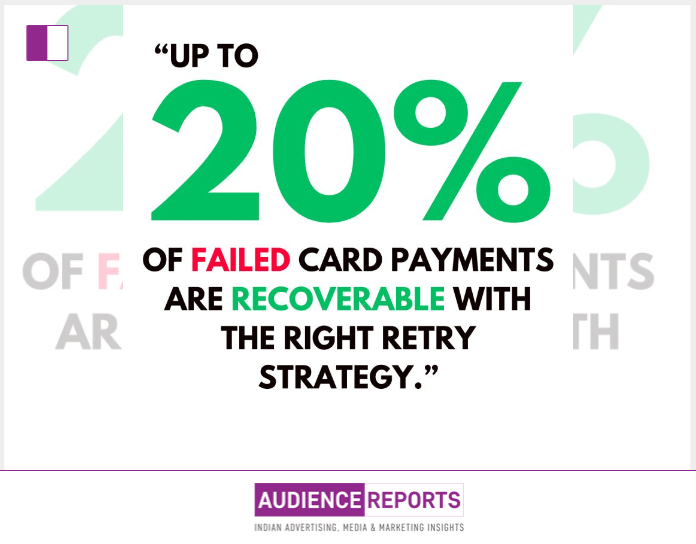Dwayne Gefferie has long stood at the intersection of innovation and execution in the payments industry. As the Founder of Gefferie, he brings not just a wealth of technical expertise but a strategic lens that reframes how we view seemingly routine operational setbacks like payment failures. In his thought-provoking LinkedIn post, Dwayne Gefferie challenges us to look beyond the surface of transaction rejections and see them for what they really are: symptoms of a deeper, strategic misalignment.
Dwayne Gefferie opens the conversation with a powerful observation: payment failures aren’t just random tech glitches. They are signals warning signs that something within your payment infrastructure isn’t built to handle the complexity of modern digital commerce. And in many cases, these failures are entirely preventable. This perspective immediately reframes the issue from being a matter of reactive troubleshooting to one of proactive strategy.
Having worked with global merchants managing billions in transaction volume, Dwayne Gefferie speaks from hard-earned experience. His central thesis is disarmingly simple but deeply insightful: every payment stack will eventually fail. The real question is whether a business is strategically prepared for that failure or merely hoping for the best. As he puts it, “Hope doesn’t scale. Strategy does.”
In the digital age, merchants often rely on a single payment service provider (PSP), trusting it to deliver high approval rates and recover from failed transactions. But Dwayne Gefferie argues that this approach lacks resilience. When failure inevitably strikes due to soft declines, fraud flags, timeouts, or issuer rejections most businesses are left scrambling. Why? Because they didn’t design for failure. They didn’t build systems with the agility to respond dynamically to what the data was already telling them.
What sets Dwayne Gefferie apart is his ability to translate complex technical concepts into clear strategic imperatives. He breaks down key areas where merchants can shift from reactive to proactive:
Dynamic, Redundant Routing – Dwayne Gefferie emphasizes the power of intelligent routing logic. If a transaction fails, can your system automatically retry through another PSP with a better track record for that particular region or card type? With platforms like IXOPAY, merchants can orchestrate retries not just randomly, but with precision based on real-time performance data.
Token Strategy as Load-Balancing Logic – Tokenization is often viewed as a security measure, but Dwayne Gefferie sees a deeper layer of strategic value. He notes that network tokens and universal tokens can become powerful tools for smart routing. By analyzing which tokens perform better under different conditions, businesses can adapt on the fly, recovering revenue that would otherwise be lost.
Local Optimization, Global Redundancy – This is where many merchants fall short. Dwayne Gefferie points out that a local PSP might offer higher approval rates in specific markets but only if your system is designed to route traffic accordingly. Without local PSPs in your mix, and without a routing engine that considers regional performance, your global ambitions are undermined by local blind spots.
The brilliance of Dwayne Gefferie’s perspective lies not in lofty theory but in its real-world effectiveness. He’s seen companies recover up to 30% of failed transactions simply by implementing these strategies. That’s not incremental improvement it’s transformative. And importantly, it doesn’t require tearing down and rebuilding your existing stack. Tools like IXOPAY make it possible to overlay strategic logic onto existing systems, turning reactive processes into resilient infrastructure.
Dwayne Gefferie isn’t calling for more technical fixes he’s calling for a mindset shift. He wants merchants, developers, and payment leaders to stop treating failures as isolated incidents and start seeing them as predictable events within a system that can be optimized. That’s the kind of thinking that differentiates execution from strategy, and ultimately, surviving from thriving in a competitive digital marketplace.
When Dwayne Gefferie talks about payments, he doesn’t just discuss systems he discusses ecosystems. He sees the entire chain of payment decision-making as a living, breathing organism, one that must constantly adapt to changes in consumer behavior, issuer logic, and risk appetite. His view is that rigidity is a liability; adaptability is the real competitive advantage.
By the end of his post, Dwayne Gefferie leaves us with a challenge. Are you tackling these issues in your stack, or are you still flying blind? It’s a simple question, but it cuts to the core. It forces business leaders to evaluate whether they are truly in control of their payment destiny or merely reacting to problems as they arise.
In an industry often caught up in buzzwords and features, Dwayne Gefferie offers something rare clarity. He reminds us that behind every payment failure is not just a broken line of code but a missed opportunity for strategic alignment. And in doing so, he elevates the conversation from “What went wrong?” to “How can we design it better next time?”
The message of Dwayne Gefferie is clear: Payment success isn’t about eliminating every failure. It’s about being prepared for the inevitable and turning setbacks into systems that work smarter. It’s a lesson in foresight, and for anyone in the digital payments space, it’s one worth taking to heart.





































